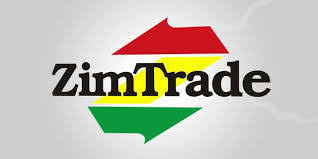
EXPORT promotion agency, ZimTrade has encouraged coffee producers to take advantage of a unique window to scale and revive the industry owing to growing demand in Europe.
According to ZimTrade, Europe, one of the world’s top coffee markets, is undergoing a significant shift which the agency believes presents opportunities for local coffee producers to scale operations.
Most of Zimbabwe’s coffee is currently produced by smallholder farmers.
“Europe, one of the world’s largest coffee-consuming regions, is undergoing a significant shift in consumer preferences, creating new opportunities for emerging producers,” ZimTrade Client manager Vivinah Matswetu said in ZimTrade’s April 2025 Newsletter.
“Coffee drinkers across the continent are increasingly prioritising quality, transparency and sustainability, with a notable transition from mass-market blends to ethically sourced, specialty-grade beans.
“For Zimbabwean coffee producers, this shift represents a unique window to scale and revive what was once one of the country’s most promising agricultural exports.
“As the global leader in green coffee imports, Europe accounted for 31% of global coffee consumption in 2022, equivalent to approximately 55 million bags.”
She said Germany leads the pack, followed by Italy and Belgium, with consumption patterns in these countries influencing broader European trends.
- Zimbabwe’s trade deficit narrows to US$179m
- Malawi warms up to Zim products
- ZimTrade targets African markets
- ZimTrade targets African markets.
Keep Reading
“Although mainstream coffee still dominates in volume, there is growing demand for single-serve coffees, specialty origins, certified products, and low-caffeine options,” Matswetu said.
“This demand is particularly pronounced in Western European countries, where consumers are increasingly willing to pay premium prices for ethically produced, high-quality coffee with a compelling story of origin.
“Zimbabwean coffee, which has long been regarded for its quality and distinctive flavour, is well positioned to meet this demand.”
According to ZimTrade, despite a history of underutilisation, recent collaboration among government entities, development partners and private sector stakeholders has sparked a revival in the sector.
In the Zimbabwe Coffee Sector Road Map 2030, the target is to increase national production to 5 000 tonnes annually by 2030, with a focus on expanding cultivation, supporting smallholder farmers and improving processing standards.
“The 2023/24 season already reflects this upward trajectory, with production rising by 15% to approximately 780 tonnes, up from 681 tonnes in the previous season,” Matswetu said.
“In parallel, prices have surged to around US$7 per kilogramme, offering both incentive and opportunity for continued growth.”
Research shows that efforts have been particularly focused in Zimbabwe’s Eastern Highlands, namely the Honde Valley in Mutasa district, the Chipinge Highlands, Chimanimani and Vumba areas that offer ideal microclimates for cultivating high-quality Arabica coffee.
This is because these regions produce beans with desirable profiles, such as bright acidity, medium body, floral and citrus notes and smooth texture traits that resonate strongly with specialty buyers in Europe.
“The European market’s appetite for specialty coffee extends beyond flavour. Increasingly, consumers demand traceability, transparency, and sustainability across the entire coffee value chain,” Matswetu said.
“These expectations are further reinforced by European Union regulations, which now place a stronger emphasis on environmental and social governance in agricultural imports.
“As such, Zimbabwean producers seeking to access this market must meet legal safety and quality requirements and demonstrate compliance with voluntary standards linked to sustainability and ethical sourcing.”
She said certifications such as Organic, Fairtrade and Rainforest Alliance were becoming increasingly critical to market access.
“These labels enhance trust, but also allow producers to command higher prices and access niche markets,” Matswetu added.
ZimTrade is already assisting local coffee producers in identifying opportunities and navigating entry requirements.
“Countries like Germany, the Netherlands, France and those in Scandinavia have been identified as particularly receptive to origin coffees with clear sourcing credentials and artisanal attributes,” Matswetu said.






